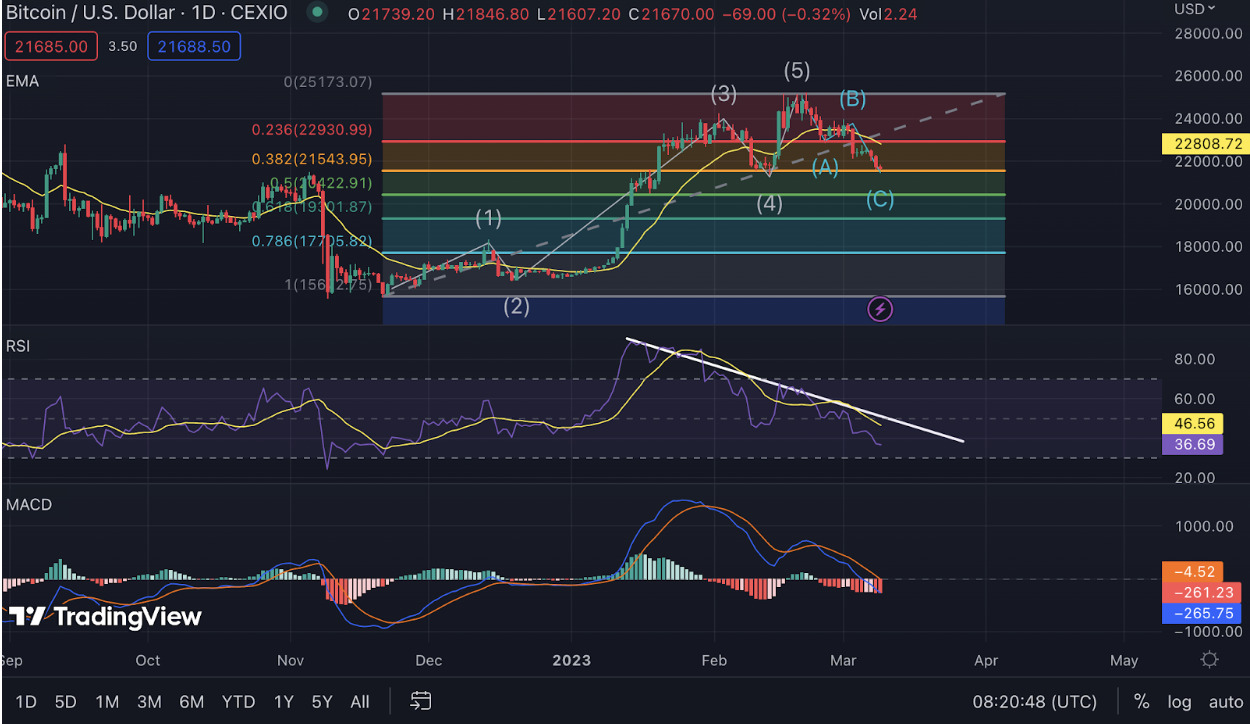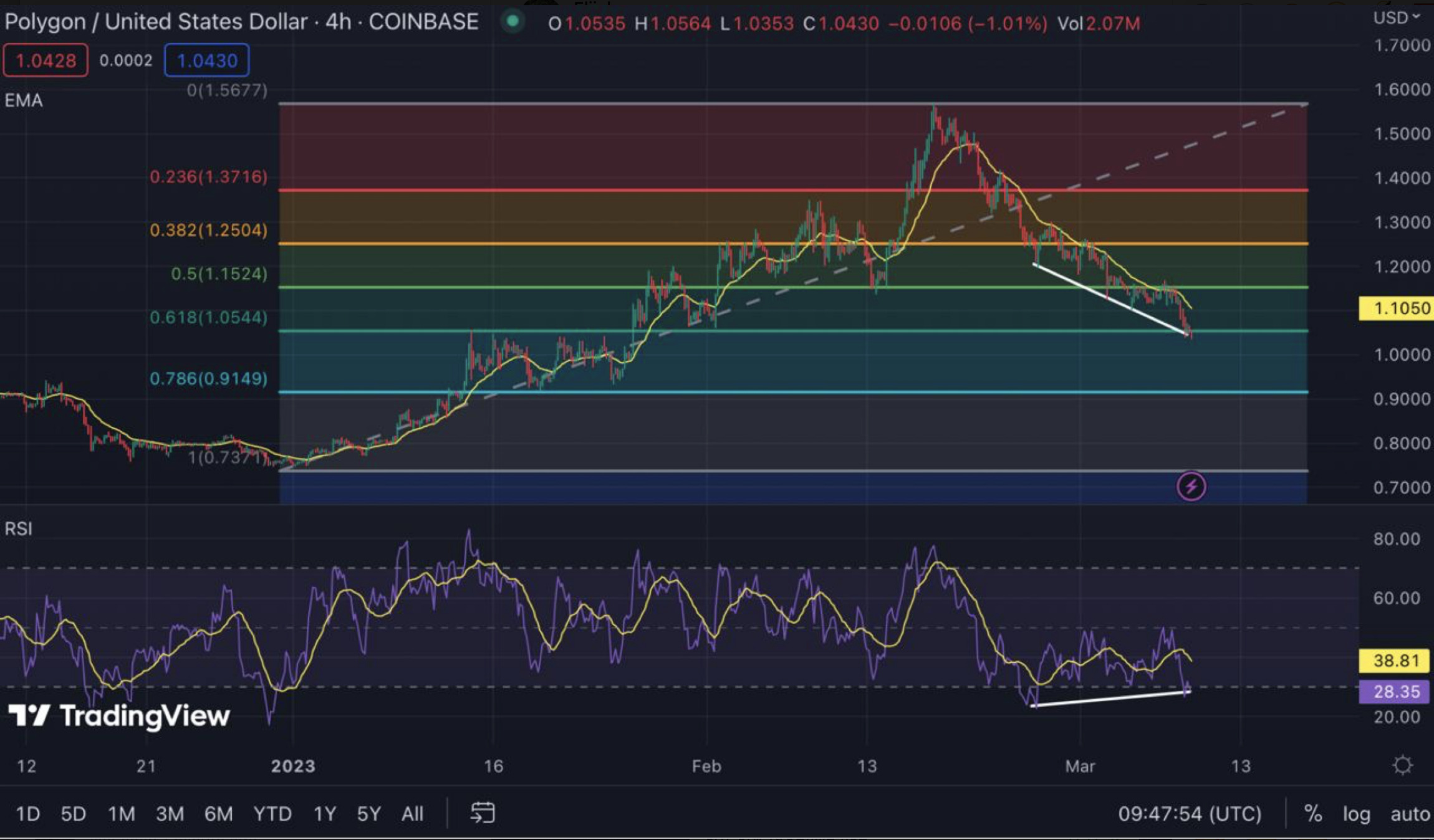In this week’s crypto highlights, we explore the price movements of BTC, MATIC, CAKE, and XRP. Additionally, this recap includes other notable industry news items that occurred over the last seven days. Without further ado, let’s dive into the latest market developments.
What to know ahead of Mt.Gox payouts
In February 2014, Mt.Gox, one of the largest crypto exchanges at that time, collapsed, admitting that 750,000 of its customers’ bitcoins had been lost. However, Mt.Gox customers may soon start receiving part of their funds after nine years of waiting. According to the latest announcement, Mt.Gox creditors need to choose an appropriate payout method and timing by April 6, 2023. The current repayment deadline is October 31, 2023.
Note: Mt.Gox redemption plans were rescheduled multiple times, meaning this distribution period may not be final.
Nevertheless, once it is set up, users should receive early repayments in a mix of crypto and Japanese yen. This is the first tranche of repayments, with further amounts set to come.
While it is not clear how much bitcoin will be handed out to creditors during this period, it will be a portion of the exchange’s balance sheet. It totaled 142,000 BTC ($3.3 billion), 143,000 BCH ($19 million), and 69 billion yen ($510 million), according to a 2019 document.
The first 200,000 yen worth of each creditor’s claim will be paid in that currency. If their claim is greater than this amount, and they choose crypto and cash, they will receive a mix of around 71% crypto and 29% cash after the initial payment.
Could this move dump crypto markets?
The Mt.Gox crypto exchange collapsed when the BTC price was around $800, meaning all its customers stand to gain financially, and may have incentive to sell their BTC. A massive sell-off could move the market to a certain degree. However, it is unlikely that all Mt.Gox customers will decide to jump off crypto.
Firstly, most of these users are early adopters, and some of them decided to receive repayments in digital assets. If only cash repayments were selected, crypto funds will be automatically sold for fiat. For users, who wanted to quit, it could be quite a suitable choice.
But, for instance, two of Mt. Gox’s largest creditors, defunct crypto exchange Bitcoinica and MtGox Investment Funds (MGIF), have opted for the crypto payout. They share 20% of all claims within the “rehabilitation plan.”
Secondly, BTC is currently trading 67% below its all-time high. It is unlikely that Mt.Gox customers will decide to leave the market near the potential cycle bottom. Some would probably like to wait for another theoretical bull run.
Overall, Mt.Gox payouts have the potential to increase volatility and selling pressure on crypto markets in the short run. But it is widely believed that this event either has already been factored into the Bitcoin price, or it will have minimal impact.
Other noteworthy market events
Silvergate will shut down operations
On Wednesday, March 1, California-based crypto bank Silvergate disclosed that it would miss the deadline for filing its annual report with the SEC. The company informed the regulator that it needs more time to finish the report, and that the impact of recent events raised questions about its ability to continue business operations. The news sent Silvergate’s stock price down by more than 45% in a day.
The next day, some crypto firms ended their relationships with Silvergate anticipating insolvency issues. This group of crypto platforms includes Coinbase, Circle, Paxos, Crypto.com, Gemini, Bitstamp, Bakkt, and Galaxy Digital. CEX.IO, never in possession of an active account with Silvergate, is completely unexposed to any potential fallout from the crisis.
Following these events Silvergate discontinued the SEN platform that clients used to move money between each other’s exchanges. According to Bloomberg, Federal Deposit Insurance Corporation (FDIC) officials were consulting with Silvergate executives on how to keep the company in business. But on March 8, 2023, the company announced that it will wind down operations, and liquidate its bank.
Ethereum developers implemented the smart accounts feature
On March 1, the Ethereum team deployed an ERC-4337 token standard on the mainnet, which introduced the concept of account abstraction. The protocol is compatible with every Ethereum Virtual Machine (EVM) network including Polygon, Optimism, Arbitrum, BNB Smart Chain, Avalanche, and Gnosis Chain.
Account abstraction essentially allows Ethereum wallets to operate as programmable smart contracts. This would enable users to recover lost private keys, and store data in a standard smartphone security module, turning it into a hardware crypto wallet. Instead of writing down seed phrases, users could just secure wallets with two-factor authentication (2FA), or biometrics.
It is assumed that the implementation of account abstraction contributes to the mass adoption of cryptocurrencies, making them more convenient and understandable to use.
Chainlink unveiled a Web3 platform called Functions
Chainlink launched the Functions platform, dedicated to connecting decentralized applications (dApps) with traditional web platforms. According to the blog post, the platform empowers developers to quickly and securely build connections from smart contracts to off-chain resources on a self-serve basis, without having to run their own infrastructure.
Essentially, developers would only need to define which external data sources they want to access (i.e. weather data), how those data points should be transformed (i.e. median value), and where the output should be delivered (i.e. a smart contract).
The beta version of Chainlink Functions is now live on the Ethereum Sepolia and Polygon Mumbai testnets.
Bitcoin may experience deeper correction
The BTC price experienced increased bearish pressure amid the Silvergate collapse, and statements that the Federal Reserve will likely “raise interest rates more than expected.” This completed the ABC correction pattern we highlighted in the early stages. However, BTC correction has the potential to continue.
Firstly, daily MACD lines crossed the zero line. Recent Bitcoin price movements indicate it could help maintain bearish momentum.
Secondly, the daily RSI is inside the downtrend, and far away from the oversold zone. This means there is still room for downward movement.
However, a four-hour chart indicates that the asset may experience a short-term recovery. RSI is near the oversold zone, while MACD formed a bullish divergence (white lines). This may push the asset to the 0.236 Fibonacci level, which is located around $22,800 (cyan line).
If the asset sustains above this level, it could reestablish the bullish momentum, and confirm that BTC correction within the ABC pattern is complete.
A breakout below the 0.382 Fibonacci level (yellow line) could indicate that bears continue to dominate the market. It may turn the ABC correction pattern into a five-wave bearish price action. In this case, the next targets for the price could be 0.5 and 0.618 Fibonacci levels, or $20,500 and $19,300 respectively.
Bullish divergence for MATIC
Polygon developers have announced Polygon ID, a Web3 identification service on its Ethereum sidechain. The service authenticates user credentials for blockchain-based apps without revealing personal information. In addition, Polygon is preparing for the zkEVM mainnet beta, which is scheduled for March 27. Despite these technological developments, the MATIC price continues trending downward.
However, there are signs that can support bullish momentum. The asset reached the 0.618 Fibonacci level, which is typically viewed as a potential price target during corrections. This means the MATIC correction may come to its end. In addition, RSI formed a bullish divergence (white lines), which could support a bearish-to-bullish trend reversal.
According to Santiment, the number of active addresses on the Polygon network increased over the last 30 days. In turn, IntoTheBlock data shows that the number of short-term traders declined during the same period. Such market behavior may also support a bullish narrative for MATIC.
CAKE is inside a steep downtrend
PancakeSwap developers announced the third version of its protocol. It is scheduled to be launched in the first week of April. According to the blog post, the upgrade adds features such as improved liquidity provisioning, competitive trading fees, trading incentives, and yield-farming tools. In addition, developers announced a CAKE airdrop to celebrate protocol migration.
However, this didn’t help the CAKE price move out of the steep downtrend (blue line). The asset reached the 0.618 Fibonacci level, but the descending price movement could continue to take place. RSI is in the negative zone, while MACD lines currently don’t show signs of bullish crossovers.
The next potential target for the price could be the $3.45-$3.6 range, which is near the 0.786 Fibonacci level. If the asset breaks a descending resistance line, it could push the price to the $3.8-$4 area. Typically, the stepper the trendline, the more likely it will break, meaning there is a potential for temporary price recovery.
XRP broke the descending resistance line
 While most top 100 cryptocurrencies by market cap dropped in prices, XRP showed positive weekly performance. There was no major news regarding the SEC lawsuit against Ripple, which is widely considered one of the most important factors to determine Ripple’s future developments.
While most top 100 cryptocurrencies by market cap dropped in prices, XRP showed positive weekly performance. There was no major news regarding the SEC lawsuit against Ripple, which is widely considered one of the most important factors to determine Ripple’s future developments.
However, Brook Entwistle, a Ripple executive, stated that the firm is in talks with numerous banks about potential launches of central bank digital currencies (CBDC). This could be one of the catalysts that helped XRP break the descending resistance line (blue line).
The asset is near the overbought zone on a four-hour chart, but a daily chart formed a weak bullish divergence with RSI. This may help the asset sustain above the $0.39 resistance area. However, if the XRP price fails to consolidate above it, this could lead to a fake breakout, and accelerate bearish pressure.
Tune in next week, and every week, for the latest CEX.IO crypto highlights. For more information, head over to the Exchange to check current prices, or stop by CEX.IO University to continue expanding your crypto knowledge.
Note: Exchange Plus is currently not available in the U.S. Check the list of supported jurisdictions here.
Disclaimer: For information purposes only. Not investment or financial advice. Seek professional advice. Digital assets involve risk. Do your own research.




